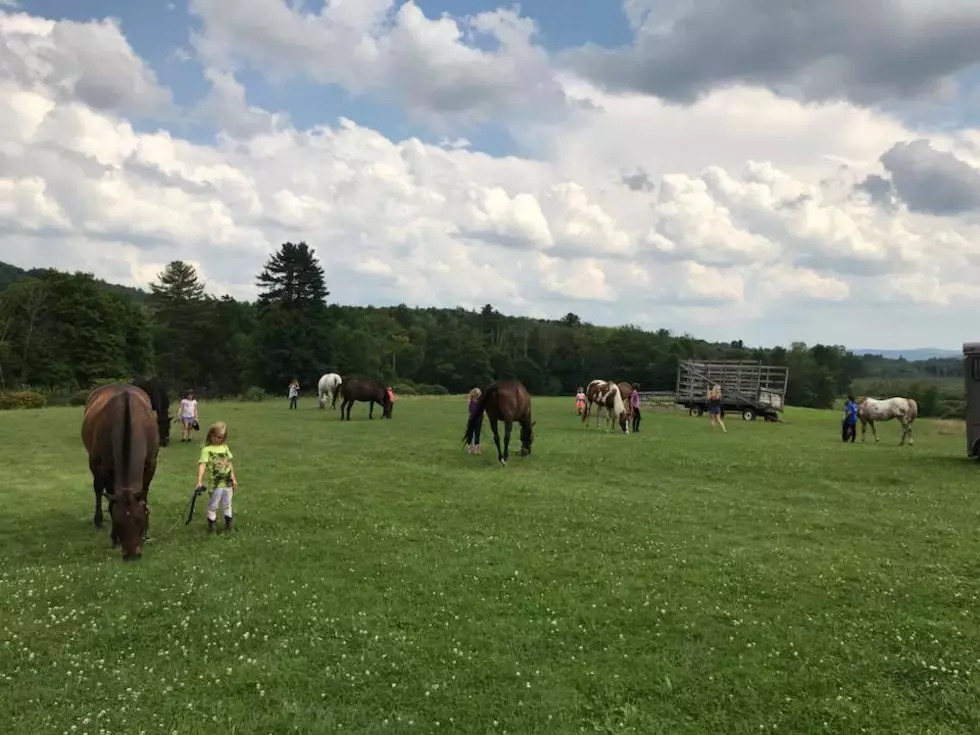
Honeybee Health Concerns
According to a press release sent to WSBS from the Massachusetts Farm Bureau Federation, farmers rely on bees and other pollinators to produce many crops including squash, pumpkins, apples and cranberries. In the last few years, there has been increasing concern about the health of honeybees and other pollinators, with some beekeepers in the United States reporting large die-offs and colony loss.
Honeybees are not native to the United States and are susceptible to a range of problems including viruses, poor nutrition, varroa mite infestation and more. Recently, the blame has been placed on a class of pesticides known as neonicotinoids, commonly referred to as 'neonics". Legislation is pending in the Commonwealth that would restrict neonics to licensed applicators and put in a host of other requirements relative to their use. The Massachusetts Farm Bureau Federation (MFBF) opposes this effort.
"We support a review of neonics in order to determine whether the proper use of these chemicals is impacting bee health," said MFBF President Mark Amato, who works as farm manager for Verrill Farm in Concord.
Massachusetts has a review process for pesticides, which is done through the Pesticide Board Subcommittee. This subcommittee is a group who makes registration decisions on pesticides and can vote to limit, restrict or ban pesticides. Reviews are science-based and done by staff of the Department of Agriculture, Department of Public Health and/or the Department of Environmental Protection. These groups look at the risk of pesticides, the use patterns and alternatives to those products under review.
This committee looks at every angle of a pesticide to see its potential impacts on the environment, applicators and more. One of the considerations is what the risks are. This science-based review process, which would examine long-term impacts, is supported by MFBF and its members through its grassroots policy development program.
The legislature is not a scientific body and should not be making decisions that are based on science, which would happen under a pending piece of legislation. Rather, MFBF and its members feel neonics should be reviewed through the body the legislature previously created to do this work - the Pesticide Board Subcommittee.
For these reasons, MFBF has given its support to H.B. 2926, which would form a special commission on pollinator health. The Commission would look at improving pollinator health by increasing and enhancing native pollinator habitats. Additionally, MFBF supported a House budget amendment that would have both required a review of neonics by the subcommittee as well as provided funding to ensure it was thorough. Unfortunately, the amendment was not adopted.
"H.B. 2926 takes a broad view on pollinator health and looks at issues we know are negatively impacting bees, such as habitat loss, limited forage sources and bee health," Amato said. "Farmers need pollinators to grow their crops, but they also need access to cutting edge technology to feed the growing global population."
MFBF's policy is set through a grassroots process, in which regular members bring concerns and issues to light in the form of a resolution. The organization's policy on pollinators (and other topics) is set by members through this resolution process. This stance on pollinator policy was developed through this process.
You can learn more about MFBF's policy priorities by going here
(press release sent to WSBS from the Massachusetts Farm Bureau Federation for online and on-air use, article image used by permission)
More From WSBS 860AM









